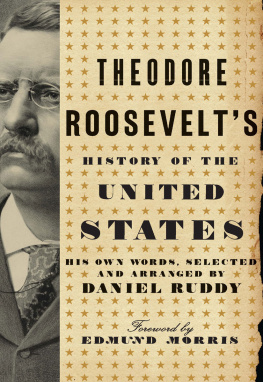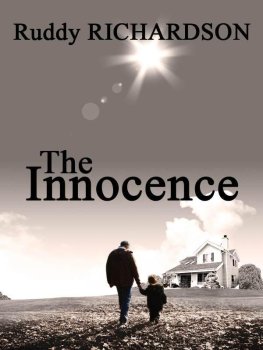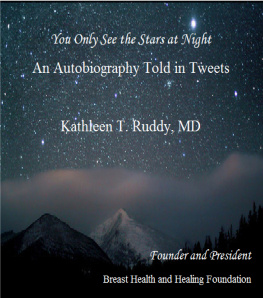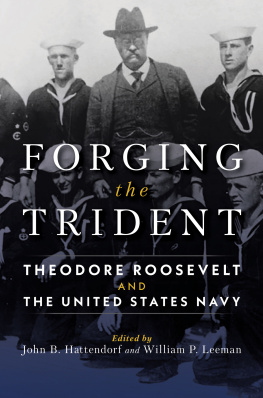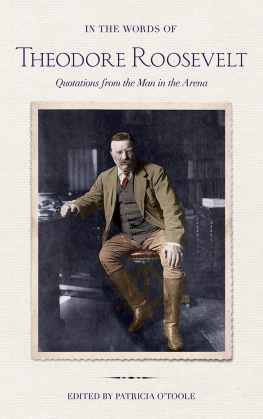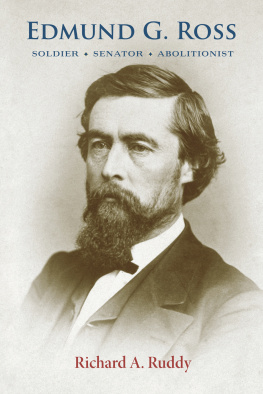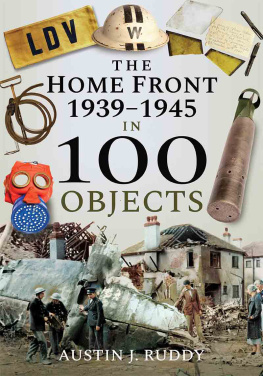The other day [Senator Cushman K. Davis] remarked, anent an investigating committee on which he and Cabot were both serving, that it reminded him of Byrons description of Mitford: He had every qualification of a historian: extreme partiality and abundant wrath.
Theodore Roosevelt, letter to his sister Anna, May 27, 1894
Impartiality does not mean neutrality. The best historian must of necessity take sides.
Theodore Roosevelt, letter to George Otto Trevelyan, January 25, 1904
The greatest historian should also be a great moralist. It is no proof of impartiality to treat wickedness and goodness on the same level.
Theodore Roosevelt, History as Literature, address delivered to the American Historical Association in Boston, December 27, 1912
H ISTROGRAPHY-THE REVIEW OF CHANGING FASHIONS IN historical thought over the decadeshas much in common with keeping tabs on the stock market. In the 1970s, when guilt about the Vietnam era was causing an epidemic of antiwar, anticapitalist, and even Marxist revisionism in the writing and teaching of American history, some of the more savvy professors on campus were said to be exchanging a hot investment tip: Sell Woodrow Wilson and buy Theodore Roosevelt.
Immediately after his death in 1919 at the age of sixty, TR (the first of our chief executives to be known by his initials) was generally considered to be the greatest American president since Lincoln and Washington. If his stature was slightly less than theirs, that was because they were both identified with nation-changing wars. But TRs presidency (19011909) was entirely peaceful, once he had suppressed a nasty insurrection in the Philippines, bequeathed to him by his predecessor William McKinley. In 1906, he became the first American to win the Nobel Peace Prize. It was awarded to him for his masterly mediation of the Russo-Japanese War and his behind-the-scenes diplomacy defusing the Morocco crisis, which nearly accelerated the advent of World War I.
However admirable these achievements, and however selfless he was in declining a third term (which he could have had on a silver platter in 1908), Theodore Roosevelt did not strike the historians of the 1920s as a heroic or tragic figure. Then as now, heroism and tragedy were essential for sentimental veneration. He was seen rather as a popular and courageous reformer who had revived the power of government to prosecute abusive corporations, made the conservation of national resources a top administrative priority, fomented a progressive revolution within the Republican Party, and, in countless arm-waving homilies, preached the gospel of good citizenship. (If you visit Theodore Roosevelt Island, his densely forested memorial in the Potomac River between Washington and Rosslyn, Virginia, you will come upon him standing white and colossal, his fist forever aloft, haranguing the birds and mosquitoes.)
He was also remembered as the impatient man of action who cut the Panama Canal after centuries of conversation by other nations, who ushered the United States onto the world stage as an industrial and naval power, and who, in his postpresidential years, became a passionate crusader for early American involvement in World War I.
For these and many other positive reasonsincluding his sheer personal lovability, which even Woodrow Wilson acknowledged was hard to resistTheodore Roosevelt was posthumously considered worthy of a place on Mount Rushmore, alongside the Emancipator and the Father of the Nation. But in 1931, Henry F. Pringle published a witty, well-researched, and devastatingly iconoclastic biography that almost overnight sent TRs reputation among historians plummeting. At that time, with fascism and Nazism rising in Europe, pacific isolationism crudescent at home, and a new, Democratic Roosevelt emerging as a contender for the presidency, TRs rhetoricwith its glorification of armed strength, its Golden Rule morality, and its Darwinian disdain for the viability of lesser, weaker nationsbegan to sound dated.
Not until 1958, the centennial of his birth, did a new generation of biographers show that he had been a much more substantial statesman than was commonly supposed. Edward Wagenknechts The Seven Worlds of Theodore Roosevelt (recently reissued) put him on a par with Thomas Jefferson as a multicultural Renaissance man. Carleton Putnams sober, scholarly Theodore Roosevelt: The Formative Years, 18581886 portrayed a born leader rising through sheer personal and intellectual force. Howard K. Beales massive Theodore Roosevelt and the Rise of America to World Power demolished Pringles argument that TR was an impulsive, flag-waving jingoist in foreign affairs. William Harbaughs Power and Responsibility (1961), while not uncritical of some aspects of TRs big stick diplomacy, recognized the greatness of his achievement in domestic policy.
A stream of books and monographs in the last quarter of the twentieth century confirmed the upward trend in TRs historical stature. The trend has continued ever since, and today, his stock is once again high, while that of the vainglorious Woodrow Wilson finds fewer and fewer buyers.
This is not to say that TR doesnt still have his fierce detractors. One amateur historian has even tried to blame him for Pearl Harbor. Critics of what is perceived, in our current gender-obsessed historiography, as the Rough Riders masculinity are especially shrill. They are unlikely to be quieted anytime soon by his lusty indictments of the sublimated sweetbreads and logical vegetarians who choose the sanctity of academe, rather than the open arena of political life, to pipe their soprano criticism.
It is to the credit of Daniel Ruddy, the coauthor in this book, that he has courageously ignored his partners stern advice: Impartiality does not mean neutrality. The best historian must of necessity take sides. Mr. Ruddy recognizes that when a man as articulate as Theodore Roosevelt is expressing opinions, intrusive comment is superfluous. We have become so inured, in recent decades, to the decline in the ability of our leaders to say what they think in clear, strong, unambiguous language (Barack Obama being the exception that proves the rule) that TRs amazing force of utterance, and the virtuosity of his written prose style, almost make one recoil. Here is a bona fide intellectual, diplomat, and politician without peer coming at us like a great roaring steam train from the past. Daniel Ruddy has nimbly leaped aboard, and managed, without TRs noticing, to control the locomotives speed and itinerary. But at no point does he take sides, in the manner of so many smug scholars who impose their presentism on those who lived in other times, and often as not understood life better.
Daniel Ruddy is modest in calling this book Theodore Roosevelts History of the United States , since his own scholarship in assembling the text is formidable. As somebody who has spent the better part of thirty years studying TRs gigantic output of prose and speech, I have nothing but admiration for a young historians ingenuity in putting together what is, in a sense, a Rooseveltian apologia pro vita sua , with not one word of other argument interpolated.
The most he has permitted himself to do, as editor and compiler, is what every serious historian since Plutarch has done to improve expression: group sentences and paragraphs and thought sequences that naturally belong together. Although TR may have said or written a thing one day and developed it further a year later, or ten years later, he was a remarkably consistent man. This text not only sounds like him, it is him.
Ladies and gentlementhe twenty-sixth president of the United States.
Edmund Morris is the fauthor of The Rise of Theodore Roosevelt; Theodore Rex; Dutch: A Memoir of Ronald Reagan; and Beethoven: The Universal Composer. He will shortly publish the third volume of his life of Theodore Roosevelt.

